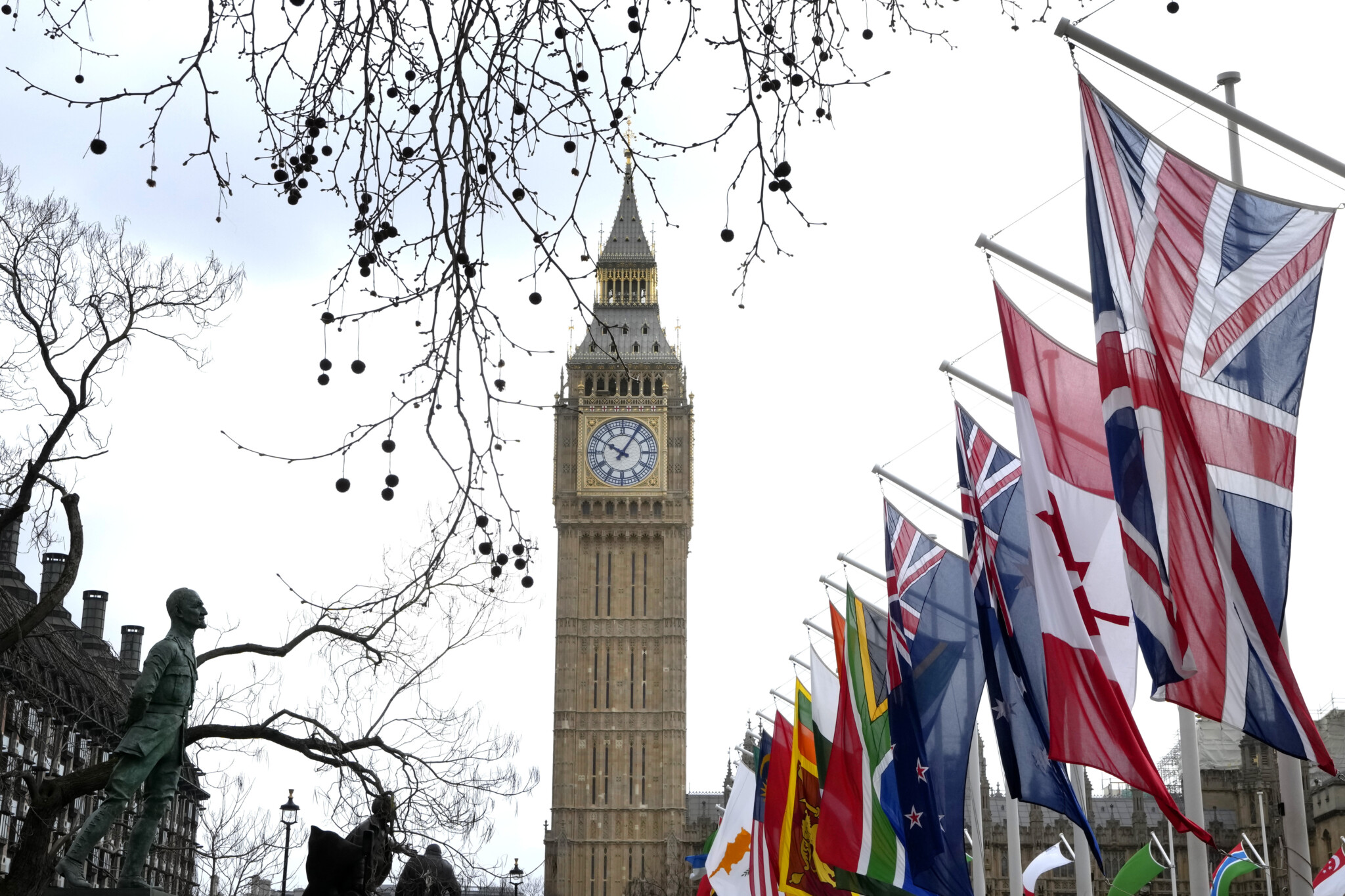There are few times in a politician’s career when life and death literally hinges on their vote. British politicians are facing such a moment now. Later this week, the U.K. Parliament will consider whether to legalize medically assisted dying in a vote on a bill put forward by Labour backbencher MP Kim Leadbeater when it is debated on a second reading this Friday.
Proponents of the bill have touted its strong guardrails and presented it as following the “Oregon model” of legalized MAID, strongly distinguishing the bill’s proposal from the much-reviled “Canadian model.” The bill would restrict access for MAID to adults with terminal illnesses and life expectancies of six months or less. It mandates the seeker have the mental capacity to make an informed decision, with confirmation by two independent doctors, review by a judge, and two assessments at least seven days apart.
The bill appears to be a sober and incremental approach to legislating medically assisted death. At the same time, it prompts some déjà vu from Canada, where the latest official numbers show that 3 percent of deaths are due to MAID, and media reports of individuals seeking MAID because of poverty, depression, and even long COVID are common.
My own feelings about MAID are ambivalent. On the one hand, as a secular classical liberal, I cannot find any persuasive reason in morality or principle to prevent a rational, autonomous human who is grievously suffering from choosing when and how to end his or her life. On the other hand, the same classical liberalism that pre-empts me from forejudging a person’s choice to end his or her suffering also makes me skeptical of converting an individual choice into a state obligation, which it is now viewed by many in Canada as being.
But here are some cautions that the U.K.’s Parliament should be aware of as it steps onto the precipice of legalized state deaths.
First, be very wary of denials that the slippery slope horrors of Belgium, Switzerland, and yes, Canada, couldn’t happen in Britain. Carter v. Canada itself, the 2014 Supreme Court of Canada decision that legalized MAID, blithely pronounced that Canada’s “medico-legal” culture would protect us from the grim stories of teenagers and depressed but otherwise healthy adults receiving MAID in Europe. There are several reasons why legalizing MAID makes its expansion beyond terminal illnesses likelier than not. The first inheres in the practice’s rational foundation, and the second in the logic of its deployment.
For the first. The expansion of MAID is baked in and practically guaranteed in any society that collectively acknowledges that a moral obligation exists for the state to provide assisted suicide (which is, to speak plainly, what MAID us) to those who are badly suffering and fear becoming too incapacitated to administer their own death. As Andrew Coyne wrote on the cusp of MAID’s legalization in 2015, proponents of MAID “present the right to die, not as a limited one, such as the right to drive, but as an unlimited one, inhering in all persons—rather like the right to life. And, it has to be said, it is by far the more coherent of the two arguments.”
There is simply no principled basis, having accepted this premise, for MAID to remain confined to those with terminal illnesses or, in Leadbeater bill’s (conservative) case, life expectancies of six months or less. Leadbeater’s own explanation of the bill’s impetus tracks this rationale: “I strongly believe that we should give people facing the most unbearable end to their life a choice about what that end is like.” A six-month cutoff is clearly arbitrary if the concern is giving people facing “unbearable ends” a way out. So is the automatic exclusion of those suffering from mental illnesses or mature minors, terminally ill or otherwise.
And although the bill is self-consciously styled in contraposition to the calamitous “Canadian model,” the ignominious road to the current state of MAID in Canada began with similar sobriety. Bill C-14, which legalized MAID in 2015, confined its availability to mentally competent adults whose deaths were “reasonably foreseeable,” and mandated a 10-day waiting period before MAID could be administered. Unlike Leadbeater’s bill, C-14 was deliberated upon at length, openly, and from all quadrants of Canadian society, including extensive consultations on conscientious objection and religious perspectives. Leadbeater’s bill, by contrast, is set to be debated in Parliament over a single five-hour session.
This week, in an editorial cover urging British MPs to vote in favour of expanding MAID, the Economist dismissed the proposition that, in legalizing MAID, Britain would inevitably face pressure to widen it: “In Canada the scope widened, but that was because the courts enforced broad eligibility criteria derived from the country’s existing Charter of Rights and Freedoms.”
It’s true, of course, that judicial review under the broad rights guaranteed in the Charter has acted as the major catalyst for MAID’s expansion in Canada, with a Quebec Superior Court judge in 2019’s Truchon striking down the “reasonably foreseeable death” requirement as overbroad and disproportionate.
But the rapid normalization of assisted dying, once introduced into a society, is not something that judges—Canadian or otherwise—have a unique susceptibility to. Parliament, in responding to Truchon, could easily have responded by either refusing to expand MAID and invoking the notwithstanding clause, or with a different threshold for requesting MAID. Instead, they immediately capitulated to the judicial declaration and removed the requirement that death be reasonably foreseeable, opting to do away with mandatory waiting periods to receive MAID while they were at it.
Indeed, the Economist goes on to acknowledge “that future legislation could extend the right to assisted dying after due debate and consideration,” concluding that “then that is not an argument against, but a recommendation,” before going on to critique Leadbeater’s bill for being too restrictive. These calls are sure to intensify, and parliamentarians will not be immune to them. British constitutional scholars have already openly contemplated using the European Convention on Human Rights to widen the scope of the bill.
The second, more practical reason why expansion is likely once the threshold of legalization is crossed is the logic of the state bureaucracy itself strongly favours the expansion of MAID. Here, Canada and the U.K. are far more alike than the U.K. and Oregon are. Both Canada and the U.K. have large public health bureaucracies which often run at full capacity, as well as societies demographically dominated by aging boomers. State bureaucracy favours expanding MAID, offering MAID, and—no matter how strong the safeguards or clear the guidelines—tacitly or explicitly promoting MAID.
Every friend of mine in Canada with a close relative who is seriously suffering—whether or not their death is imminent—has been swiftly but gently taken aside and advised to consider MAID by a nurse or doctor. This is not because Canadian health-care workers are evil, but because the logic of MAID overtakes the system in which they work.. MAID converts a human being, suffering in all of their end-of-life indignities and physical needs, into a simple and neat solution, moreover an empty bed. These calculations, though harsh, are unavoidable in a rationed public care system.
No algorithm or optimization consultant is needed to tell you that this is very useful for an overstressed system. The underlying efficiency of MAID can be converted into normative arguments for its expansion with alarming rapidity. With these baked-in incentives, some soft coercion of vulnerable patients is virtually guaranteed.
Legalizing assisted suicide is a very serious step, and U.K. parliamentarians should not delude themselves otherwise. A legal framework born of compassion could swiftly evolve into one governed by convenience, and the ideals of personal autonomy may be overshadowed by systemic expedience. Parliament should consider itself warned.











